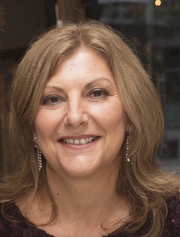We are one of the largest English and Writing disciplines in Australia, enriched by the research excellence of our internationally distinguished staff.
Placing first in Australia and equal 19th internationally in the 2024 QS World University rankings for English Language and Literature, our discipline is held in very high regard. With more than 30 full-time staff, we have one of the largest cohorts of academics specialising in English and Creative Writing.
Our lecturers have a broad range of expertise traversing genres, authors and historical periods in English literature and language, as well as Australian, American and Irish literatures, literary theory, film and television studies, writing and rhetorical studies, and creative writing.
Explore and develop your skills in fiction, non-fiction, poetry and other forms of writing. Gain a deep understanding of theories and histories of writing and develop the core skills of writing, structuring and editing. We give you intimate access to Sydney’s literary life, including a constant calendar of readings, performances, major literary and cultural events, and a host of celebrated visitors.
Bring together contemporary critical theory with literary narratives and investigate how and why literature remains an influential cultural form in the 21st century. Consider the ways in which the study of literature works within a specifically Australian cultural context and explore the expansion of literary and cultural narratives across a broad transnational framework.
*Available to all students studying the Bachelor of Arts, Bachelor of Economics and Bachelor of Visual Arts, as well as all combined Bachelor of Advanced Studies degrees.
English has a vital research culture and offers postgraduate supervision across an extensive range of areas. These include: Medieval and Early Modern Literature; Eighteenth and Nineteenth Century Literature; Modern and Contemporary Literature; Australian and Aboriginal literature and culture; American literature and culture; British and Irish literature; world literatures; literary and cultural theories; studies in gender and sexuality; film and TV studies; scholarly editing and language studies; poetry, poetics, drama and the novel; rhetoric, aesthetics, hermeneutics and semantics; and creative writing.
English Studies delves into contemporary critical theory, the enduring significance of literature in the 21st century, and Australian literary works. It offers critical reading, literary history, and exploration of English as world literature. Tailored for research students, secondary school teachers, and literature enthusiasts seeking advanced studies.
Manual Description : Discipline Chair
Manual Address :
Manual Addition Info Content :
Manual Type : profile

_self
Auto Type : contact
Auto Addition Content :
Auto Name : true
Auto Position : true
Auto Phone Number : false
Auto Mobile Number : true
Auto Email Address : true
Auto Address : false
UUID :
Through our leading researchers, we have expertise in these areas:
The Novel Network group examines the relationship between the novel and the ‘everyday’.
The Modern and Contemporary Literature and Culture group seeks to develop intellectual and creative ties with contemporary practitioners of all kinds.
The Medieval and Early Modern Centre explores the historical, literary, linguistic, musical and artistic history of the medieval and early modern world.
Combining the experience and skills of academics and school teachers, the Shakespeare Reloaded/Better Strangers project develops fresh approaches to the teaching of Shakespeare, producing educational activities for the classroom, professional development workshops and the publication of research outputs on the theory and practice of pedagogy.
John Woolley Building (A20),
The University of Sydney, NSW, 2006
Phone: 1800 SYD UNI (1800 793 864) (in Australia)
+61 2 8627 1444 (outside Australia)
Email: sace.enquiries@sydney.edu.au